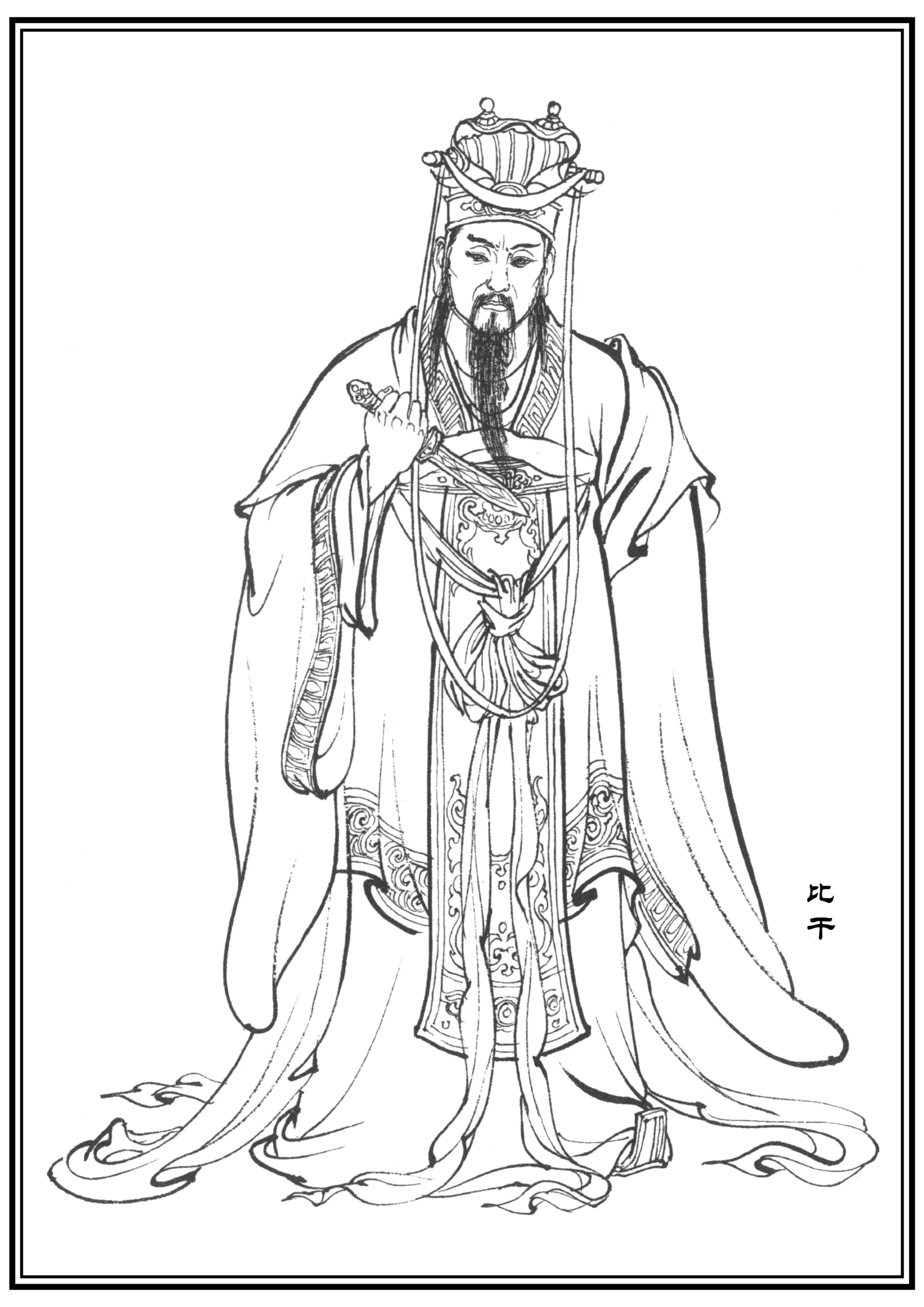
Bi Gan
Bi Gan was the son of Wen Ding, the king of the Shang Dynasty. He was intelligent and studious in his childhood. At the age of 20, he assisted Emperor Yi as the Grand Master, and was entrusted with the important task of assisting Emperor Xin. He served in politics for more than 40 years, advocating the reduction of taxes and corvée, encouraging the development of agricultural and animal husbandry production, advocating smelting and casting, and enriching the country and strengthening the army.
In the late Shang Dynasty, the power of Xi Bo (King Wen of Zhou, Ji Chang) became increasingly powerful, and King Zhou of Shang, Di Xin, gradually lost power. Bi Gan gave advice to King Zhou, but King Zhou refused to listen.
King Zhou became even more promiscuous. Wei Zi repeatedly advised King Zhou, but King Zhou refused to listen. Wei Zi (son of King Di Yi of Shang) conspired with the Grand Master and the Junior Master and left the State of Yin. Bi Gan said, “As a minister, I have to risk my life to advise.” So he tried his best to advise King Zhou. King Zhou was furious and said, “I heard that the heart of a saint has seven holes.” So he cut open Bi Gan’s chest and dug out his heart to see.
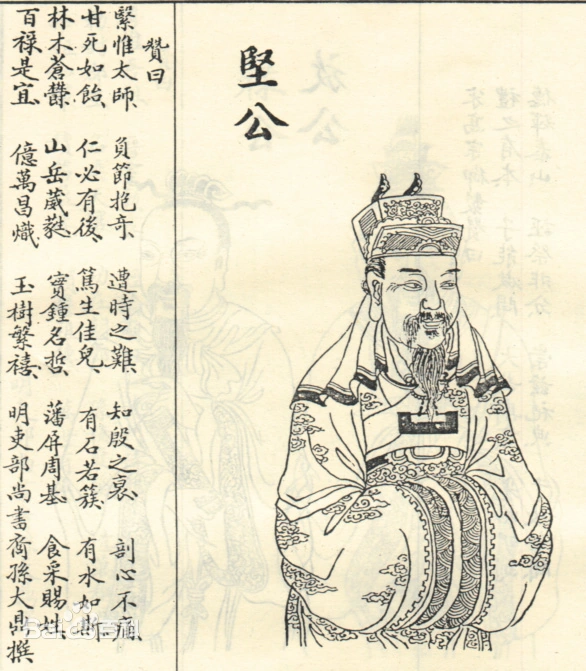
Lin Jian
Lin Jian, his father Bi Gan was the son of King Taiding of the Shang Dynasty, a noble family. His surname was Zi and his name was Gan. Bigan was intelligent, diligent and studious when he was young. At the age of 20, he assisted Emperor Yi as the Grand Master, and was also entrusted with the important task of assisting Emperor Xin. Gan has been in politics for more than 40 years.
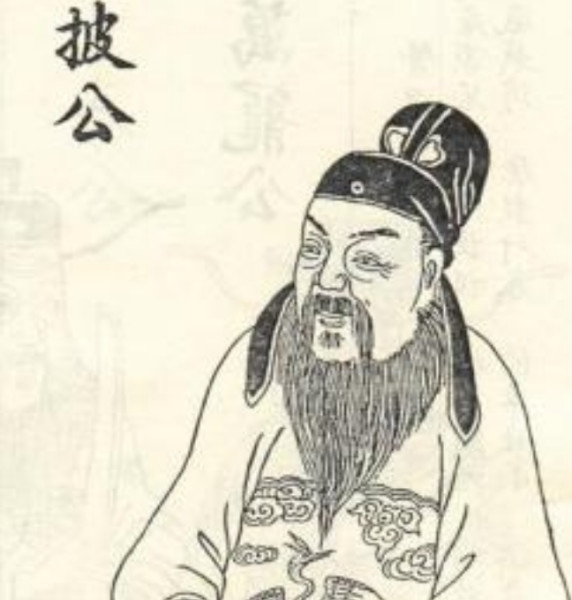
Lin Pi
Lin Pi (733-802 AD) was styled Maoze and Maoyan, and was also known as Shidao. He was the second son of Lin Wanchong, the governor of Gaoping in the Tang Dynasty, and the ancestor of the Lin family of the Nine Pastures. He was from Putian County.
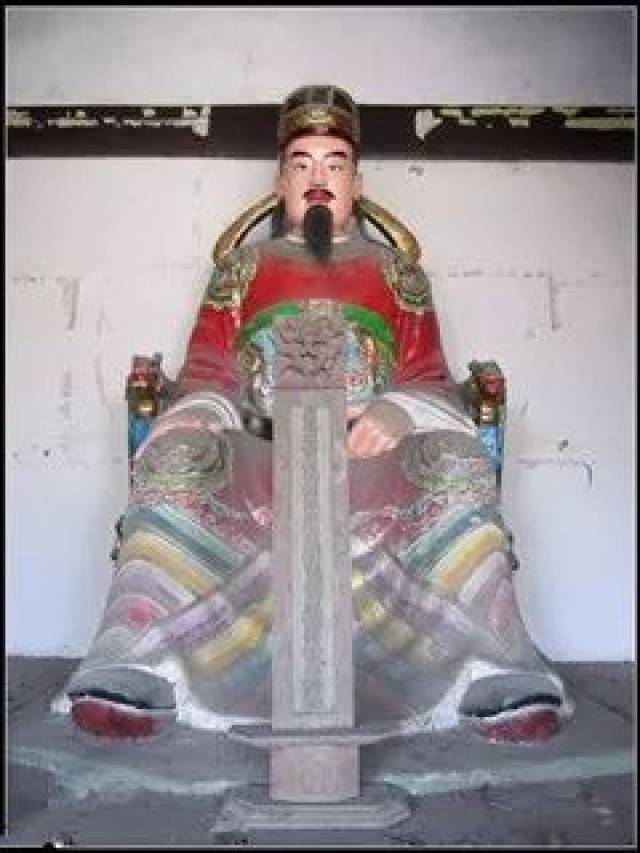
Lin Shensi
Lin Shensi (844-880), courtesy name Qianzhong, alias Shenmengzi, was born in Fuzhou, Fujian. He lived in Hongshan, Qinpingli, Chongxian Township, Changle County (now Dahong Village, Tantou Town, Changle District, Fuzhou City). He passed the imperial examination in the 10th year of Xiantong. In the 11th year of Xiantong, he won the first place in the Boxue Hongci exam. He was the first thinker in Fujian history. He was an important symbol in the history of Fujian’s cultural development, marking Fujian’s transition from barbarism to civilization.
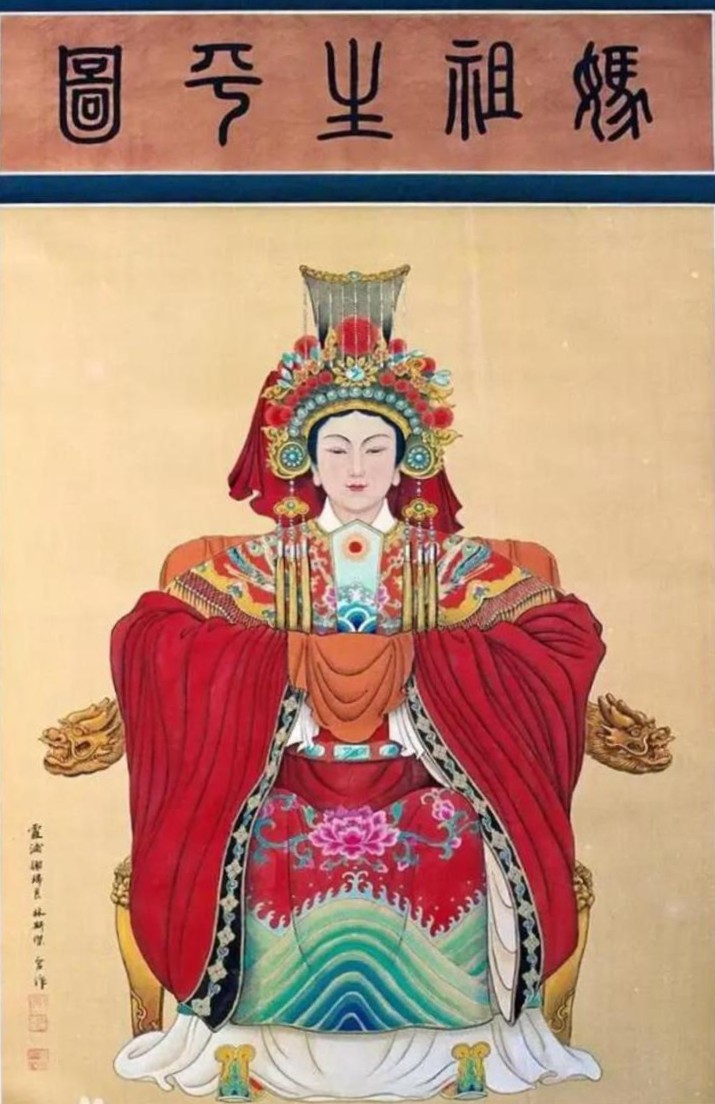
Mazu / Lin Mo Niang
Mazu is the goddess of the sea in Chinese folk beliefs. The main center of the belief is Meizhou Island, which has spread to coastal Zhejiang, Fujian, Guangdong, Hainan, Jiaodong Peninsula, Tianjin and other regions. It has also been spread to other places by immigrants from these regions. Taiwan, Ryukyu, Japan, Singapore and other places.
Mazu’s original name is Lin Mo, nicknamed “Mo Niang”. She is also known as the Holy Mother of Heaven, the Queen of Heaven, the Queen of Heaven, the Queen of Heaven, the Goddess of Heaven, the Mother of Meizhou, Mazu Po, and Aunt Po. She lived in Yingtian County, Xinghua County during the Northern Song Dynasty. , ranked last among siblings. It is said that she was extremely intelligent but taciturn, and became a fairy who practiced both Buddhism and Taoism, predicting fortune and misfortune for people, but she remained unmarried throughout her life. After his ascension, it was rumored that he often appeared in the rough seas in the form of a “beautiful woman in red clothes, long hair and no makeup”, and could change the direction of typhoons and protect ships from voyages.
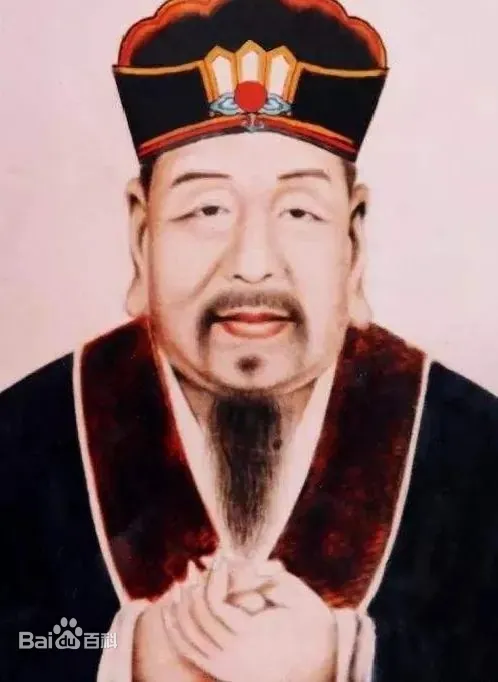
Lin Zhaoen
Lin Zhaoen (1517-1598), courtesy name Maoxun, alias Longjiang, Taoist name Ziguzi, Xinyinzi, and later name Hunxushi and Wushishi, was a magistrate of Stanley, Xinghua Prefecture, Fujian Province (now Fujian Province). He was born in Putian City and was a religious figure and thinker in the Ming Dynasty. He founded the Trinity Church, so he was known as Mr. Sanjiao, Lin Sanjiao, the Master of Sanyi, and Xia Wuni.
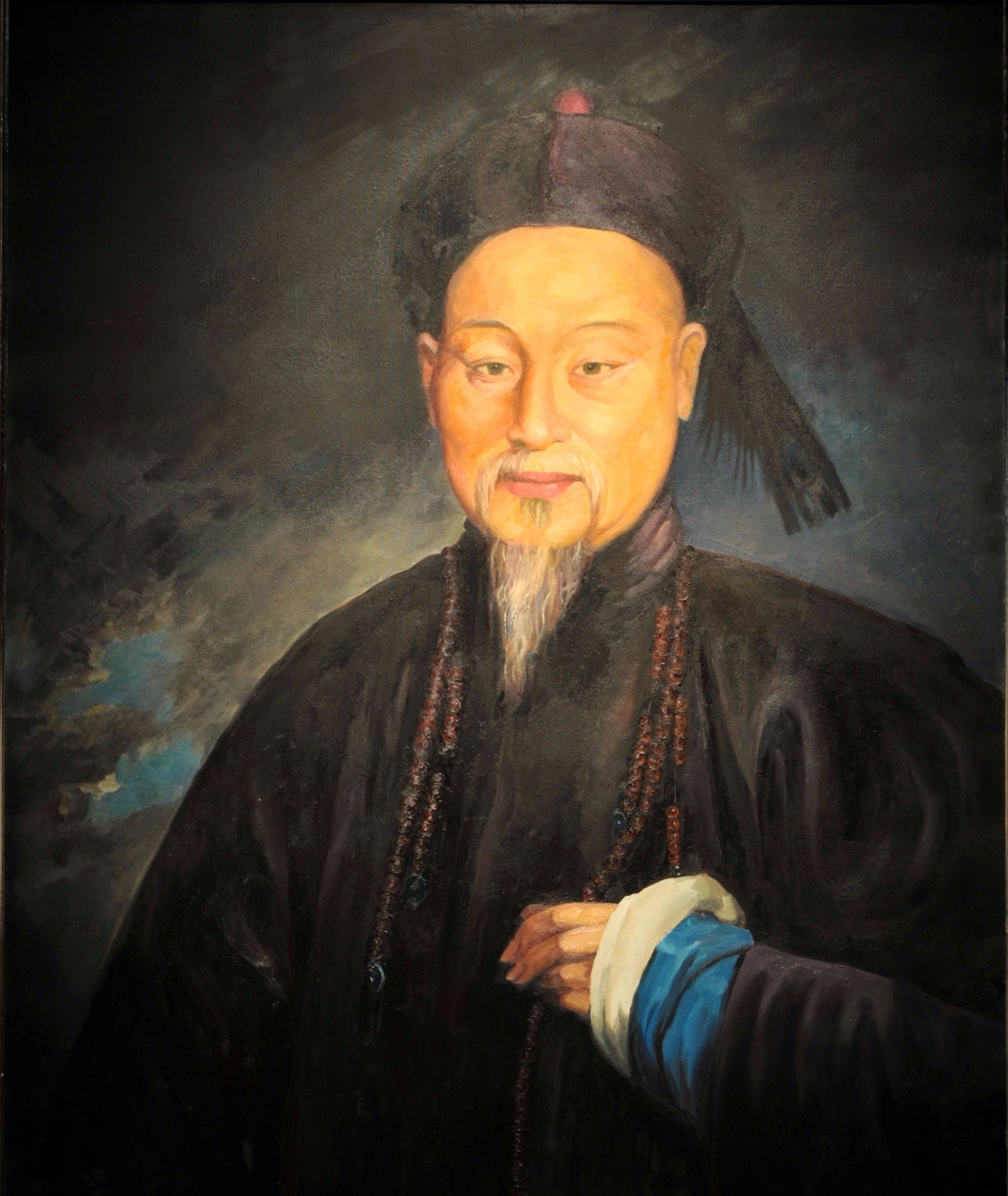
Lin Zexu
Lin Zexu (August 30, 1785 – November 22, 1850), whose courtesy name was Yuanfu, and also Shaomu and Shilin, was later known as the Old Man of Shicun, the Tuisou of Shicun, the Tuisou of Seventy-two Peaks, the Hermit of Pingquan, and the Wanderer of Lishe. He was a native of Houguan County, Fujian Province. He was a politician, writer, thinker, and national hero in the late Qing Dynasty of China
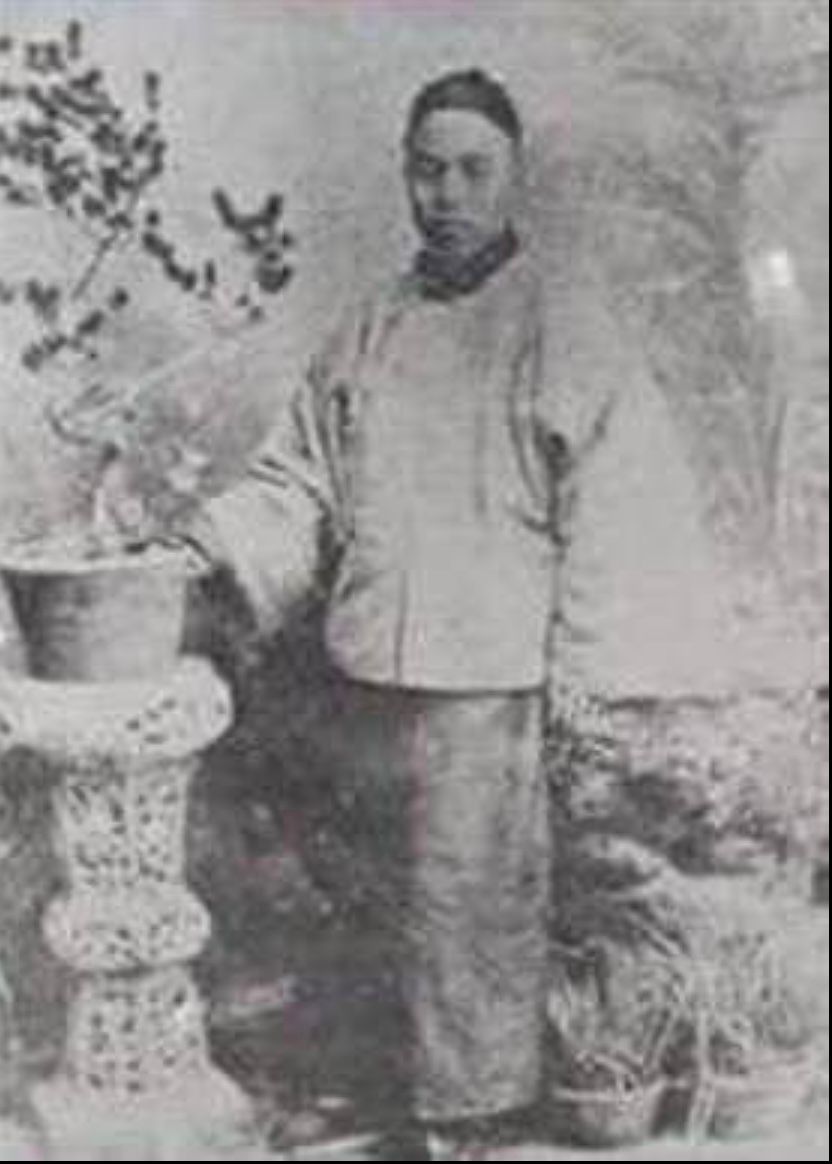
Lin Xu
Lin Xu (1875-1898), courtesy name Tun Gu and pseudonym Wan Cui, was born in Houguan, Fujian (now Fuzhou). He was a modern Chinese poet, a reformist, and one of the “Six Gentlemen of the Reform Movement of 1898”. In the 19th year of Emperor Guangxu’s reign (1893), Lin Xu passed the imperial examination and later became a member of the cabinet. He was orphaned at a young age and was well-read, which earned him a good reputation.
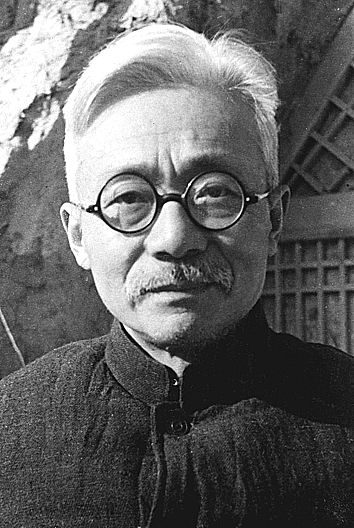
Lin Boqu
Lin Boqu (March 20, 1886 – May 29, 1960), whose given name was Zuhan, courtesy name Suiyuan, and pseudonym Boqu, was born in Anfu County (now Linli County), Hunan Province, China. He was one of the important leaders of the Communist Party of China and was known as one of the Five Elders of the Communist Party of China, along with Dong Biwu, Xu Teli, Xie Juezai and Wu Yuzhang.
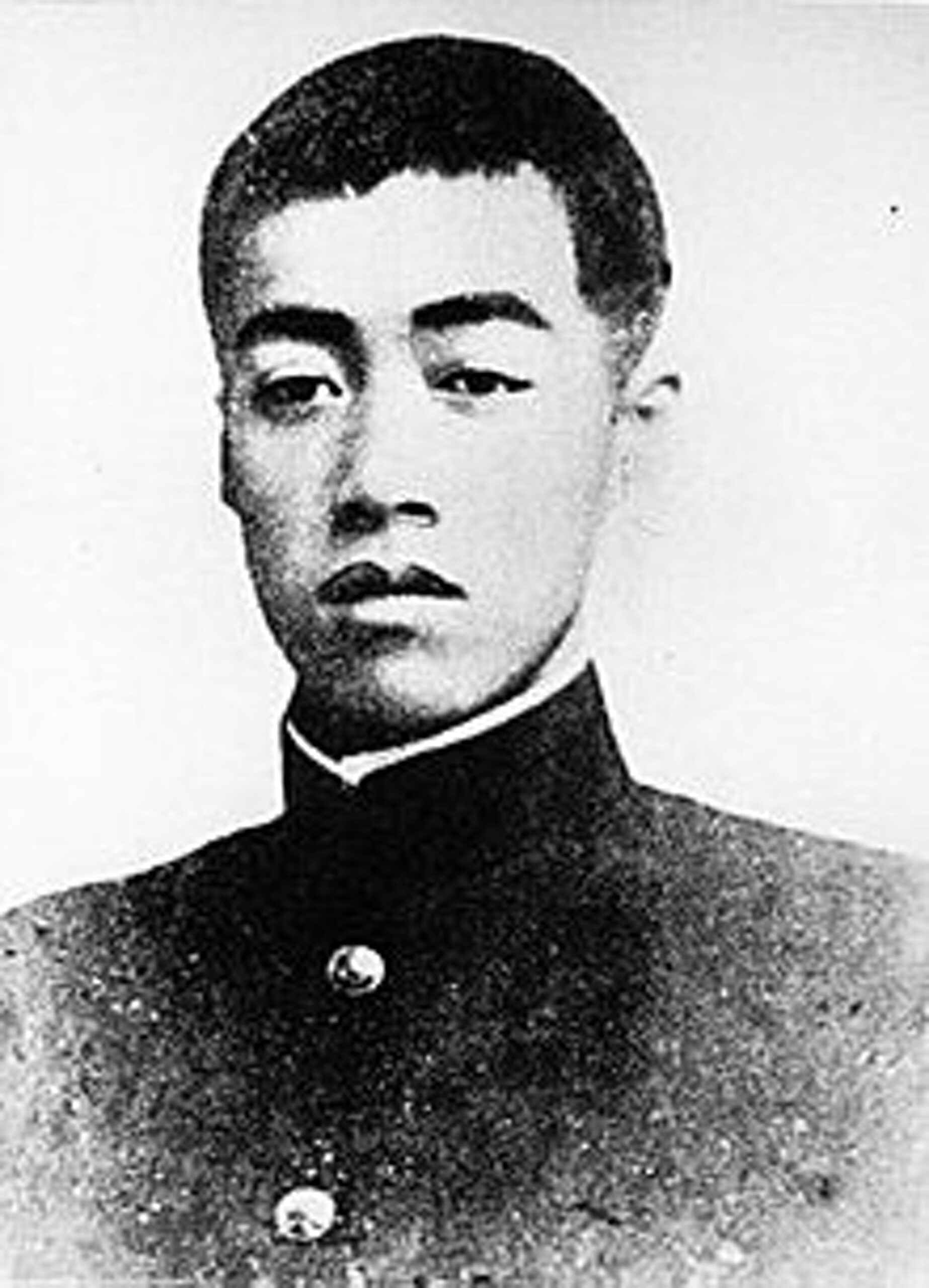
Lin Juemin
In 1902, he was admitted to the liberal arts department of the Fujian University in Fuzhou; in 1905, the 18-year-old Lin Juemin returned to his hometown and married Chen Yuankai (Zi Taoan, a juren in the Jichou year of the Guangxu period – 1889, awarded the fourth-rank flower feather, and was the deputy magistrate of Guangdong. He married Chen Yiying, the daughter of the 1911 Revolution (whose name was Chen Yiying).
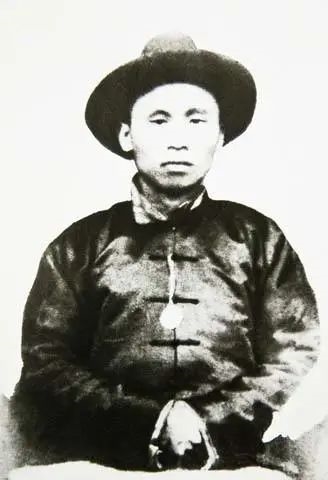
Lin Xiangqian
Lin Xiangqian (October 19, 1892 – February 7, 1923), also known as Yuande, was a native of Min County, Fujian Province. He was the leader of the February 7th strike and a martyr of the Chinese Communist Party. He was the first person to sacrifice his life after the founding of the Communist Party of China.
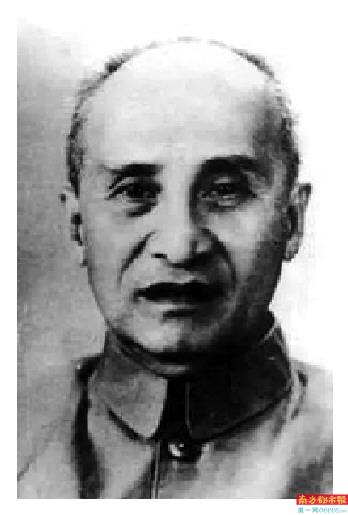
Lin Qiangyun
Lin Qianyun (1894-1970) was born in Dalaili, Xiasha Township, Luokeng, Xinhui, Guangdong. He participated in the Guangdong-Hong Kong General Strike in 1925 and joined the Communist Party of China in 1926. He served as secretary of the Kowloon Prefectural Committee of the Communist Party of China, and special commissioner of the All-China Federation of Trade Unions and the All-China Federation of Trade Unions in Hong Kong. During the Anti-Japanese War, he served as commander of the Pearl River Column. After the founding of the People’s Republic of China, he served as a member of the South China Branch of the Central Committee of the Communist Party of China and the second secretary of the Working Committee, Chairman of the Guangdong Federation of Trade Unions, Chairman of the South China District Committee of the Chinese Seamen’s Union, member of the Standing Committee of the Guangdong Provincial Committee of the Communist Party of China, and Vice Governor of Guangdong Province. He was a representative of the first and second National People’s Congress and a member of the Standing Committee of the third National People’s Congress.
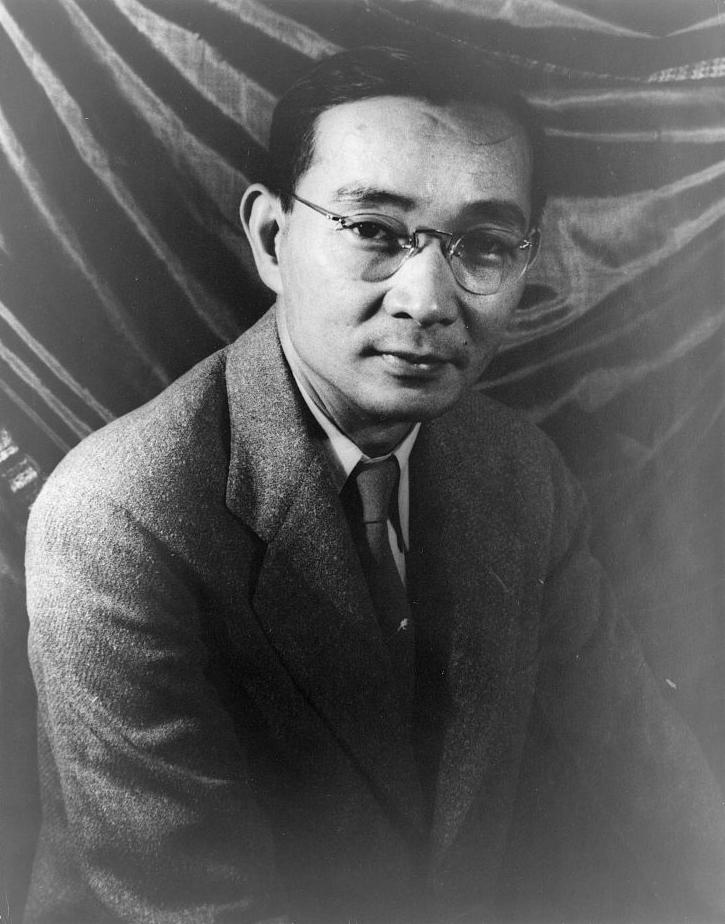
Lin Yutang
On August 22, 1895, Lin Yutang was born in Banzai Town, Pinghe County, Zhangzhou Prefecture, Fujian Province. His father, Lin Zhicheng, was a Protestant pastor and had nine children. In 1912, Lin Yutang studied English at St. John’s University in Shanghai and received a bachelor’s degree in 1916. After graduation, he taught in the English Department of National Tsinghua University.
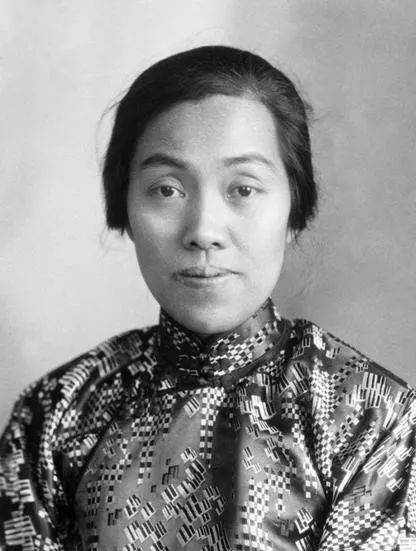
Lin Qiaozhi
Lin Qiaozhi (December 23, 1901 – April 22, 1983), also known as Lin Limi, was a Chinese gynecologist and obstetrician from Xiamen, Fujian. She is the first Chinese director of obstetrics and gynecology at Peking Union Medical College Hospital and the only female among the first batch of academicians of the Chinese Academy of Sciences. Although Lin Qiaozhi remained unmarried throughout her life, she personally delivered more than 50,000 babies and was known as the “Mother of Ten Thousand Babies.” She has made contributions to the research on fetal intrauterine respiration, female pelvic diseases, gynecological tumors, and neonatal hemolytic disease, and is one of the founders of modern obstetrics and gynecology in China.
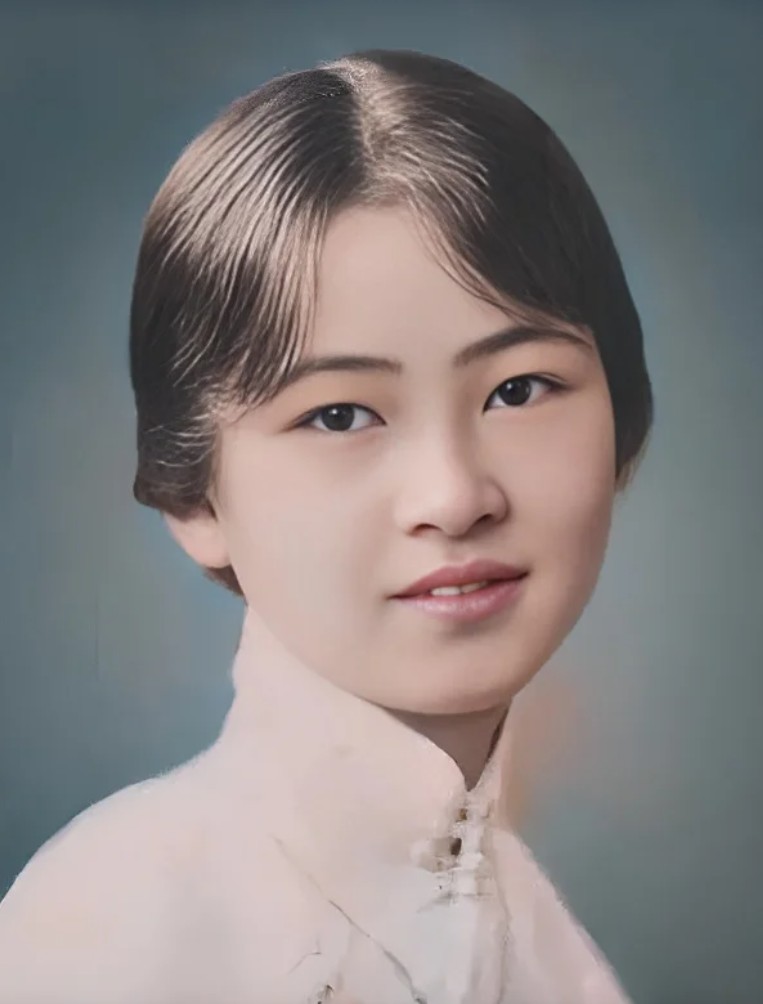
Phyllis Lin / Whei Yin Lin
Phyllis Lin has amazing literary attainments. Her prose is full of spirituality and her poetry is even more popular. The novel “Ninety-Nine Degrees”, the prose “Mourning Zhimo” and “Commemorating the Fourth Anniversary of Zhimo’s Death”, and the poems “That Night”, “Laughter”, “Lotus Lantern”, “You Are the April Day in the World” and “Hearing Music in the Middle of the Night” are her classic masterpieces. But Phyllis Lin is most worthy of praise for her great achievements in the field of architecture. She is the first female architect in China. She and her husband Liang Sicheng devoted their life’s efforts to the cause of Chinese architecture, jointly created the Chinese ancient architecture research system, and founded the two architecture departments of Northeastern University and Tsinghua University. She is the ideological pioneer and founder of the research system of Chinese architectural history.
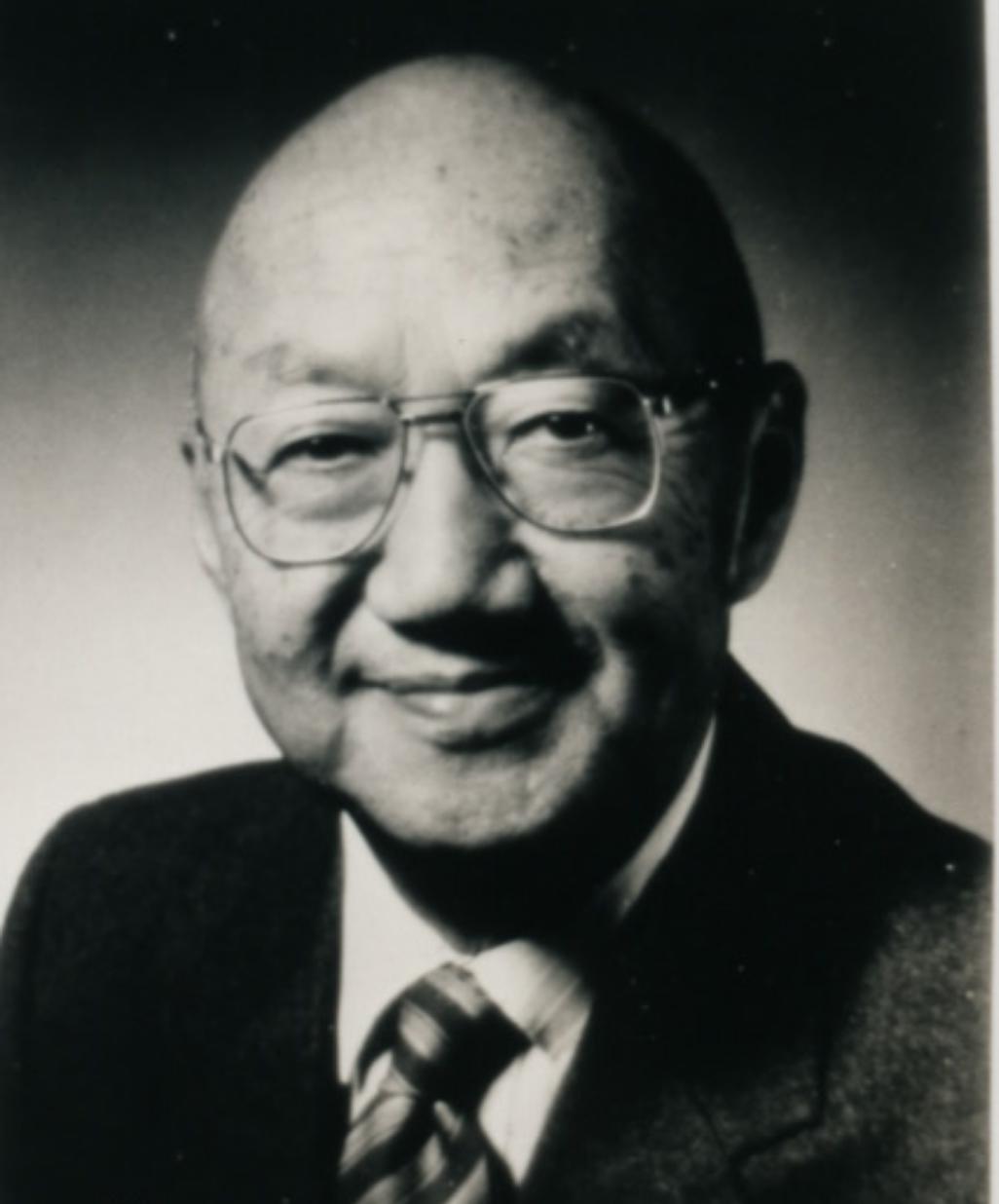
Tung-yen Lin
Tungyen Lin (November 14, 1912 – November 15, 2003), formerly known as Tong Yin, was a native of Donghan Village, Fuqing, Fujian Province. He was a Chinese-American structural engineer. Tungyen Lin’s memorial statue, located in the Xipu campus of Southwest Jiaotong University. The second son of Lin Sibi, a judge of the Supreme Court of the Republic of China. He started receiving formal school education at the age of 11. At the age of 14, he was admitted to Tangshan Institute of Technology of National Chiao Tung University (now Southwest Jiaotong University) with the first place in mathematics and the second place in other subjects.

Lin Ruoxi
In 1988, Lin Ruoxi was born into a cultural family in Chaozhou, Guangdong. Her father was a knowledgeable history teacher and her mother was a skilled Chaozhou embroidery master. Growing up in such a family environment full of cultural atmosphere, Lin Ruoxi has had a strong interest in knowledge and art since childhood.
